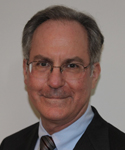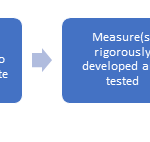TEP
In February, Lisa Gale Suter, MD, joined the Technical Expert Panel (TEP) for the Centers for Medicare & Medicaid Services (CMS) Quality Measure Development Plan, supporting the transition to the Merit-Based Incentive Payment System (MIPS) and Alternative Payment Models (APMs). She was nominated to serve in this role by the ACR.
The panel comprises clinical, scientific and technical experts who are tasked with providing the CMS with input regarding clinician- and specialty-specific measure development for the Quality Payment Program (QPP). The panel will make recommendations regarding the development of a framework to quantitatively assess quality measures, the identification of quality measurement gaps among clinical specialties and CMS quality priorities, and the outline and content of the annual progress report on CMS measure development for the QPP.
“CMS wants all perspectives involved in creating a strategic plan for measure development,” says Dr. Suter, who completed her medical degree and rheumatology fellowship at Yale University and post-graduate training in internal medicine at Yale-New Haven Hospital. She is an associate professor in the section of rheumatology at Yale University School of Medicine. Dr. Suter co-chairs the ACR’s Quality Measures Subcommittee with Alex Limanni, MD. Together, they oversee quality measure development for the ACR.
Dr. Suter explains that the CMS needs diverse TEP members to ensure future measure development for MIPS adequately reflects the needs of all clinicians and their patients. By serving on the panel she says, she can advocate for rheumatologists and their patients, who don’t always have a seat at the table.
During her one-year term, she will focus on providing feedback to CMS on important issues that are critical to rheumatologists and also reflect the complexity of their patients’ needs and care. She believes this will benefit rheumatologists and patients by helping prioritize important areas of rheumatology for measurement and avoid unintended consequences.
“There aren’t a lot of quality measures for rheumatologists and other outpatient physicians, who manage chronic, complex, medical conditions,” says Dr. Suter. “I will try to ensure the TEP focuses on patient outcomes that are meaningful to measure and not burdensome. That’s how I can help rheumatologists and our patients have a voice in this process.”
Another rheumatologist and ACR member, Kent “Kwas” Huston, MD, Kansas City Physicians Partners, will also serve on the TEP with Dr. Suter. Dr. Huston’s leadership roles in the rheumatology community include co-chairing the ACR’s chair of the ACR’s APM workgroup and serving as a member of the ACR’s Government Affairs Committee. Dr. Huston completed his medical degree at Yale University School of Medicine, his residency at Stanford University Hospital and his rheumatology fellowship at Johns Hopkins University.
MEDCAC
Douglas Graham, MD, a rheumatologist at DuPage Medical Group, a successful accountable care organization in Illinois, recently began his two-year term on the Medicare Evidence Development & Coverage Advisory Committee (MEDCAC).
The committee guides the CMS on specific clinical topics. Its responsibilities mainly include reviewing and evaluating medical literature, reviewing technology assessments, offering public testimony and examining data and information on the benefits, harms and appropriateness of medical items and services either covered or that may be eligible for coverage under Medicare.
“I’ll represent rheumatologists and physicians on this panel,” says Dr. Graham, who also served on the ACR’s Government Affairs Committee between 2014 and 2017. He was motivated by a disagreement about treatment coverage made by a local contractor. “I didn’t understand the mechanisms about how you deal with this. The ACR addressed it, which impressed me, so I joined the committee.”
Since then, he was involved in two more local determination coverage issues and has become knowledgeable about how the system works. He served on the ACR’s Quality of Care Committee between 2011 and 2014, where he was exposed to guideline development and evidence-based medicine concepts.
He explains that local determinations are generally made by nonrheumatologists. Unless people work in rheumatology, he says, they may not recognize the value of what treatments or diagnostic testing can reveal or accomplish. He’s hoping to be directly involved in such discussions so that others have a better understanding of what rheumatologists need to take care of their patients.
Dr. Graham adds that his role will involve examining the strength, quality and grade of evidence-based medicine and explaining how new treatments or technology may improve the lives of beneficiaries and help rheumatologists continue to evaluate and treat patients.
“I want to advocate for rheumatology so decision makers understand that there are the things that help us do what we need to do and the consequences of when things are changed drastically,” he says. “I’ve been interested in this area for years and am curious about how national health policy is created.”
Carol Patton is a freelance writer based in Las Vegas.




